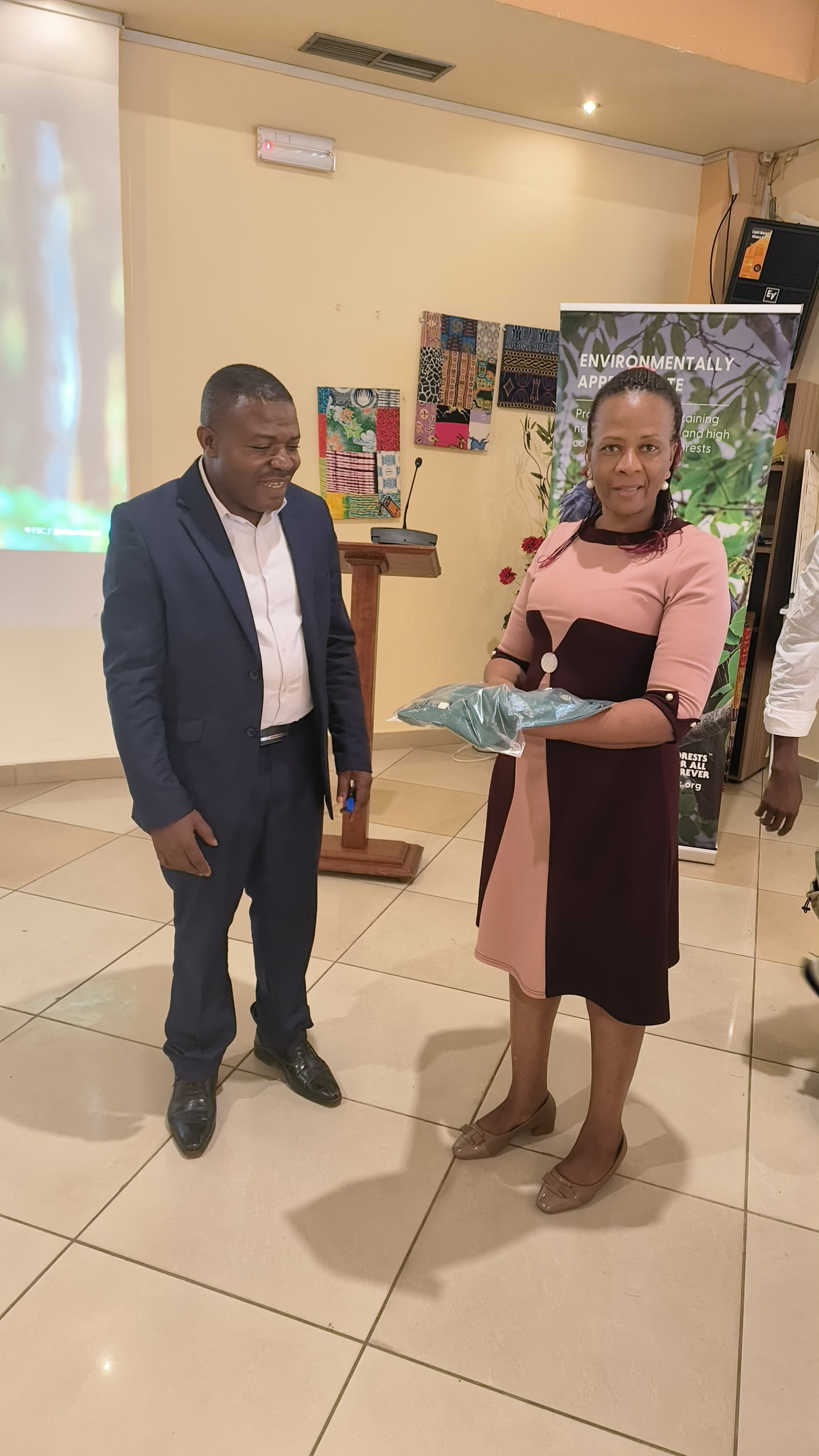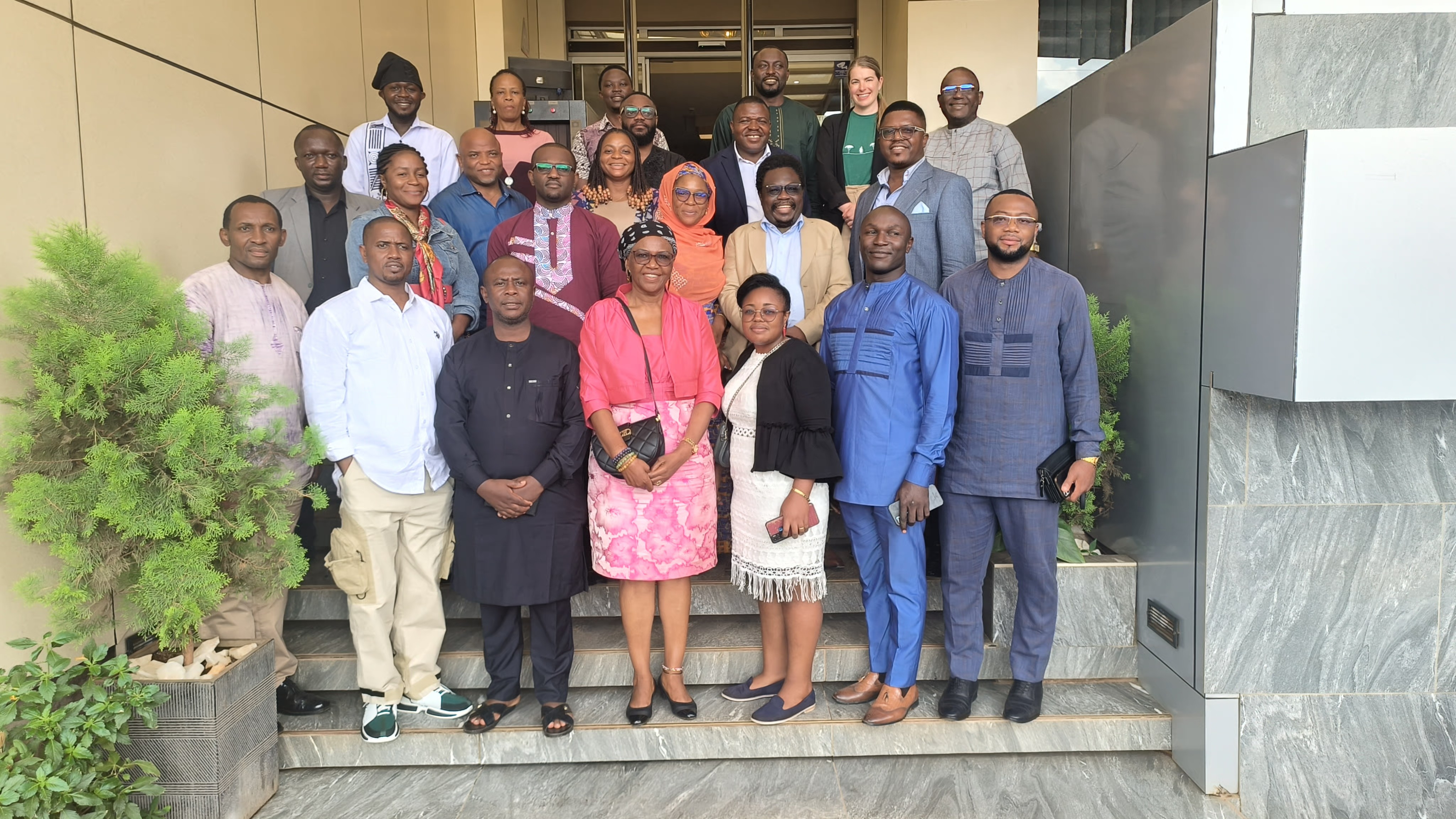The meeting was attended by approximately 25 FSC members and was facilitated by Senior Regional Communications Manager, FSC Africa, Israel Bionyi. This process, initiated by the FSC International Board aims to ensure that FSC’s foundational framework is robust, adaptable, and relevant to the pressing global challenges of our time.
At the heart of this revision is FSC’s commitment to ground-level engagement. Annah Agasha, FSC’s Africa Deputy Director, said FSC is dedication to a grassroots approach aimed at cultivating a "muscle of knowledge" from local insights that will fortify the PCI for years. Patrick Epie, Sub-Regional Coordinator for the Congo Basin and West Africa further highlighted the pivotal role of members in shaping global standards and, crucially, in tailoring them to national and local realities.

The Yaoundé consultation provided a direct platform for dialogue. Carmen Wandja, Membership Manager, shared results from a recent member survey, noting low participation from Africa (8 out of 54 members) and urging greater engagement in future consultations. Jannicka Murphy, Outreach Manager (FSC International) and Willy Lawyer, Policy Manager (FSC Africa) led discussions on key revision topics and gathered member feedback on issues ranging from Indigenous Peoples’ rights to climate change.
Member perspectives
Participants voiced strong support for making the PCI more relevant to African contexts. “I want the PCI to consider African particularities, so the interests of Africa and Africans are protected,” said Clavel Vicky Omgba, an individual member from Cameroon’s social chamber. Another member, Aisha Ngoungoure, added, “we hope FSC can be more present in our countries so that states can adopt the PCI as part of national processes.”
Member insights
Here are some insights on key revision topics:
- Indigenous peoples and local communities:
Members discussed how to best recognize and protect the rights of Indigenous Peoples and local communities, emphasizing the importance of clear definitions, legal recognition, and effective benefit-sharing.
- Gender and youth inclusion:
Achieving gender equity and involving youth in forestry decision-making were highlighted as priorities. Members called for practical measures such as gender committees, transparent recruitment, and youth employment initiatives.
- Social and worker protections:
The group stressed the need for better health and safety standards, including access to emergency services and proper protective equipment for workers.
- Climate change and protected areas:
Participants urged FSC to strengthen its climate strategies and play a more active role in certifying and protecting sensitive forest areas, especially where local rights are at stake.
- Certification benefits:
Members shared how FSC certification has inspired improvements in local laws and forest management practices, while also noting the need for better communication of these benefits to the public.
- International alignment:
The consultation addressed questions about aligning FSC standards with new regulations like the EU Deforestation Regulation (EUDR) and the importance of ongoing dialogue with international partners.
- Grievance mechanisms:
Ensuring that all stakeholders can easily access and understand FSC’s grievance processes was identified as a central concern.
Looking ahead
The feedback from this workshop will directly shape the next version of FSC’s standards, ensuring they remain the world’s most trusted framework for sustainable forestry. FSC encourages all stakeholders to participate in future consultations and help build a more inclusive, effective, and locally relevant certification system.
